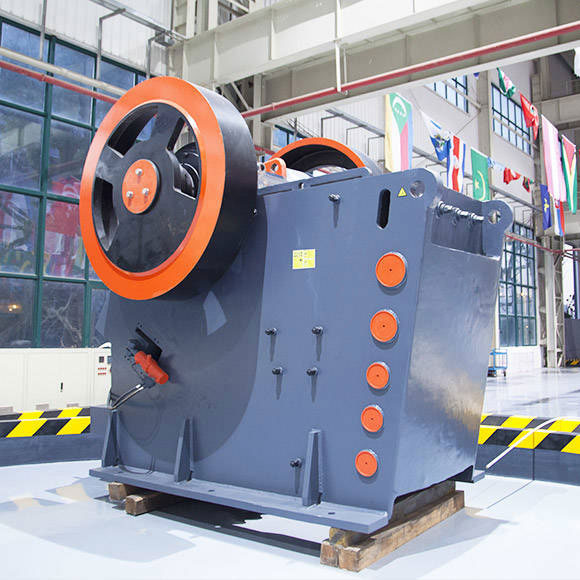A jaw crusher is a primary crushing machine used in mineral processing plants. It plays a crucial role in breaking down large rocks into smaller, more manageable pieces for further processing. This essential piece of equipment is known for its efficiency, durability, and versatility in various mining and mineral processing applications.
The basic structure of a jaw crusher consists of two vertical jaws, one fixed and the other moving back and forth. The fixed jaw remains in a stationary position while the movable jaw exerts force on the rock by forcing it against the stationary plate. This action results in the reduction of the size of the rock particles.

One of the key advantages of a jaw crusher in mineral processing is its ability to handle hard and abrasive materials. The robust design of the machine allows it to crush hard rocks and ores efficiently, making it suitable for a wide range of applications in the mining industry. The size of the crushed material can be adjusted by changing the gap between the jaws, allowing for different end product sizes.
In mineral processing plants, the primary purpose of a jaw crusher is to reduce the size of the ore for further processing. The process begins with the feeding of the ore into the crusher where it is crushed between the jaws. The crushed material then moves down through the crusher chamber and exits at the bottom, ready for the next stage of processing.
Several factors contribute to the effectiveness of jaw crushers in mineral processing:
- Feed Size: The size of the feed material determines the size of the crusher inlet. Larger pieces of ore require larger crushers with correspondingly larger feed openings.
- Crusher Settings: Adjustable settings, such as the closed side setting (CSS) and eccentric throw, allow for the customization of the output size, ensuring the production of the desired final product.
- Material Hardness: Jaw crushers are capable of handling a wide range of materials, including those with high hardness. The design of the crushing chamber and the selection of wear-resistant materials contribute to the machine’s durability.
- Maintenance: Regular maintenance is crucial for the optimal performance of a jaw crusher. This includes lubrication, inspection of wear parts, and replacement of components as needed.
- Versatility: Jaw crushers are versatile machines that can handle various types of materials, from soft and brittle to hard and tough. This makes them suitable for a variety of applications in different mineral processing operations.
Jaw crushers are indispensable tools in mineral processing plants for their ability to efficiently reduce the size of rocks and ores. Their robust design, versatility, and ease of maintenance contribute to their widespread use in the mining industry, where the crushing of raw materials is a critical step in the overall mineral extraction process.
